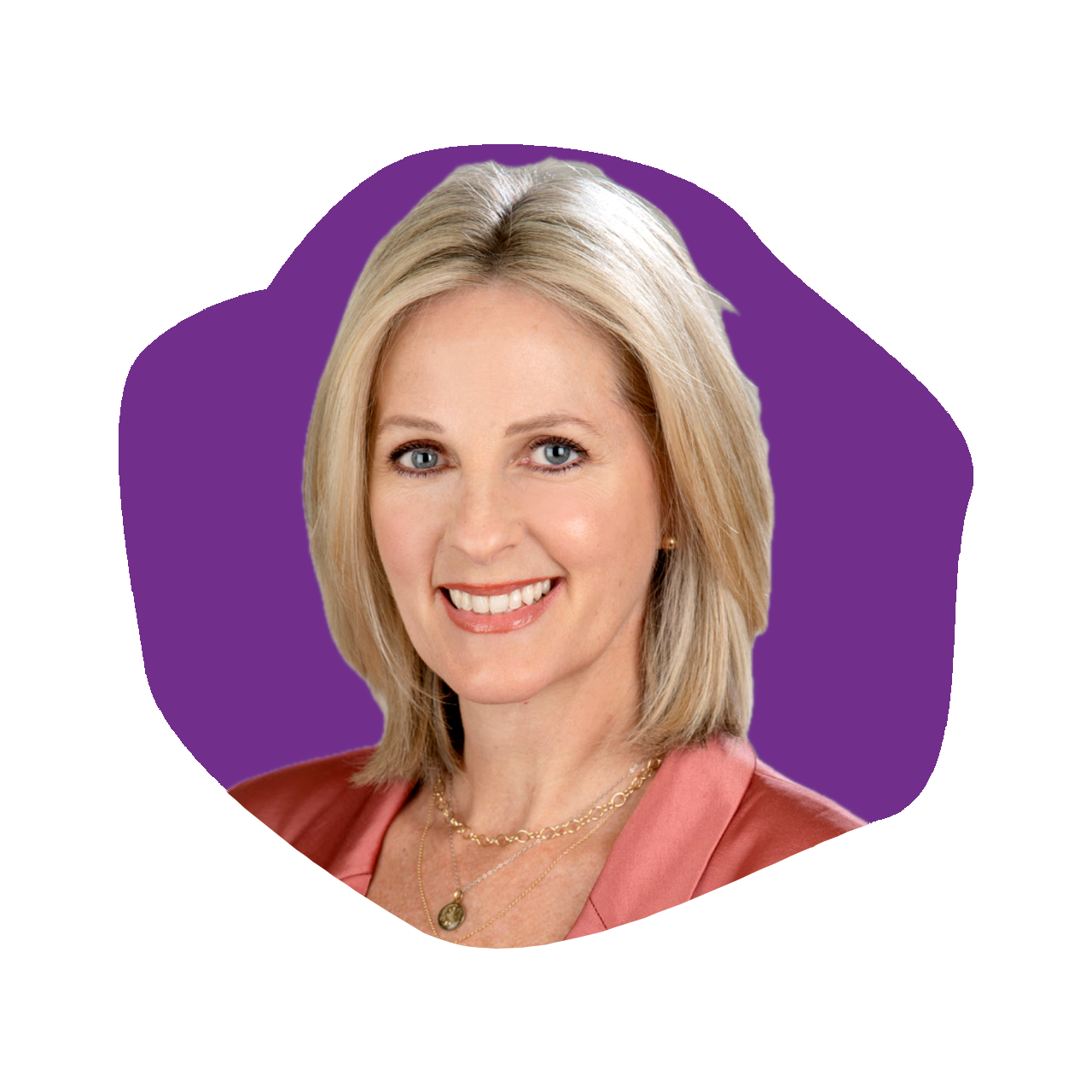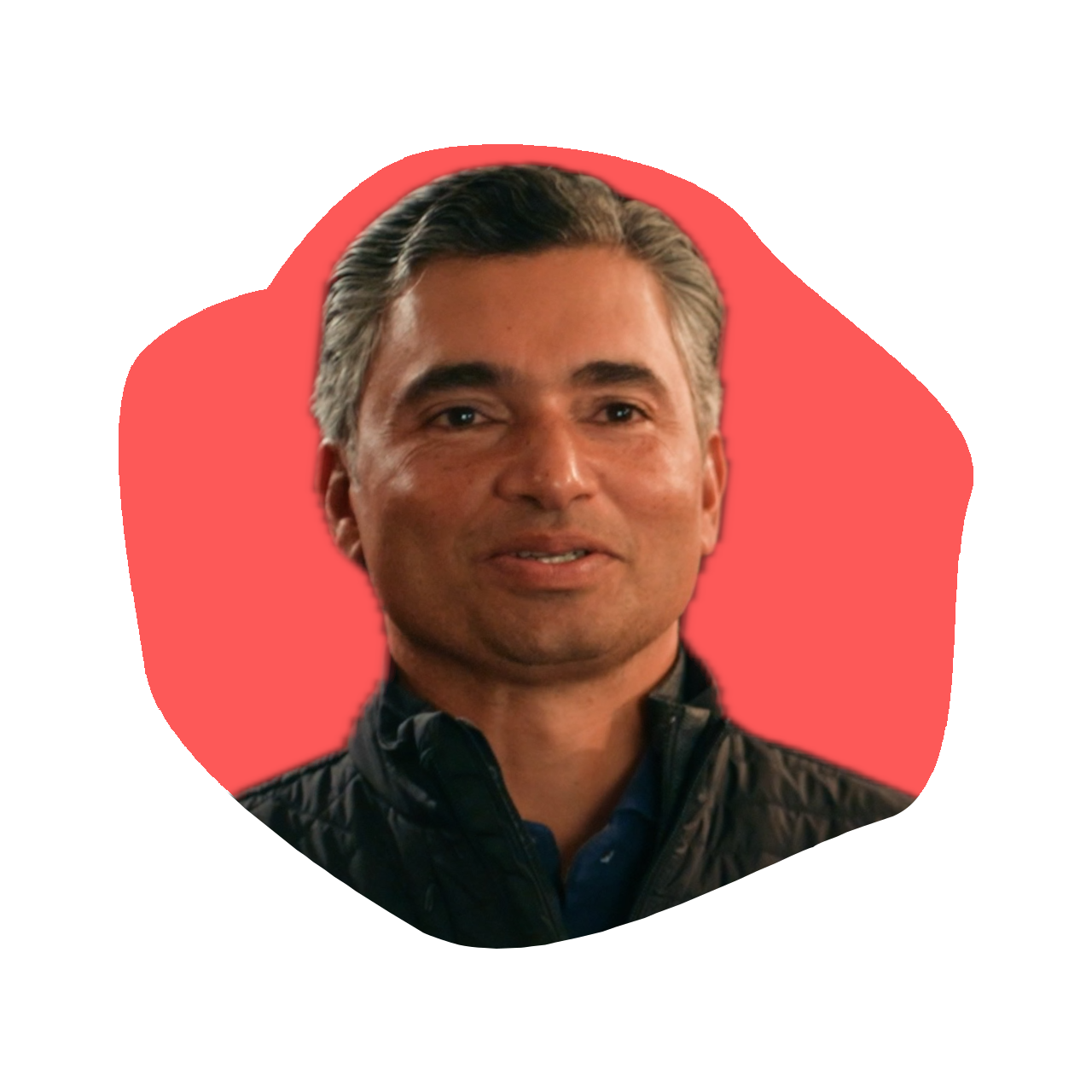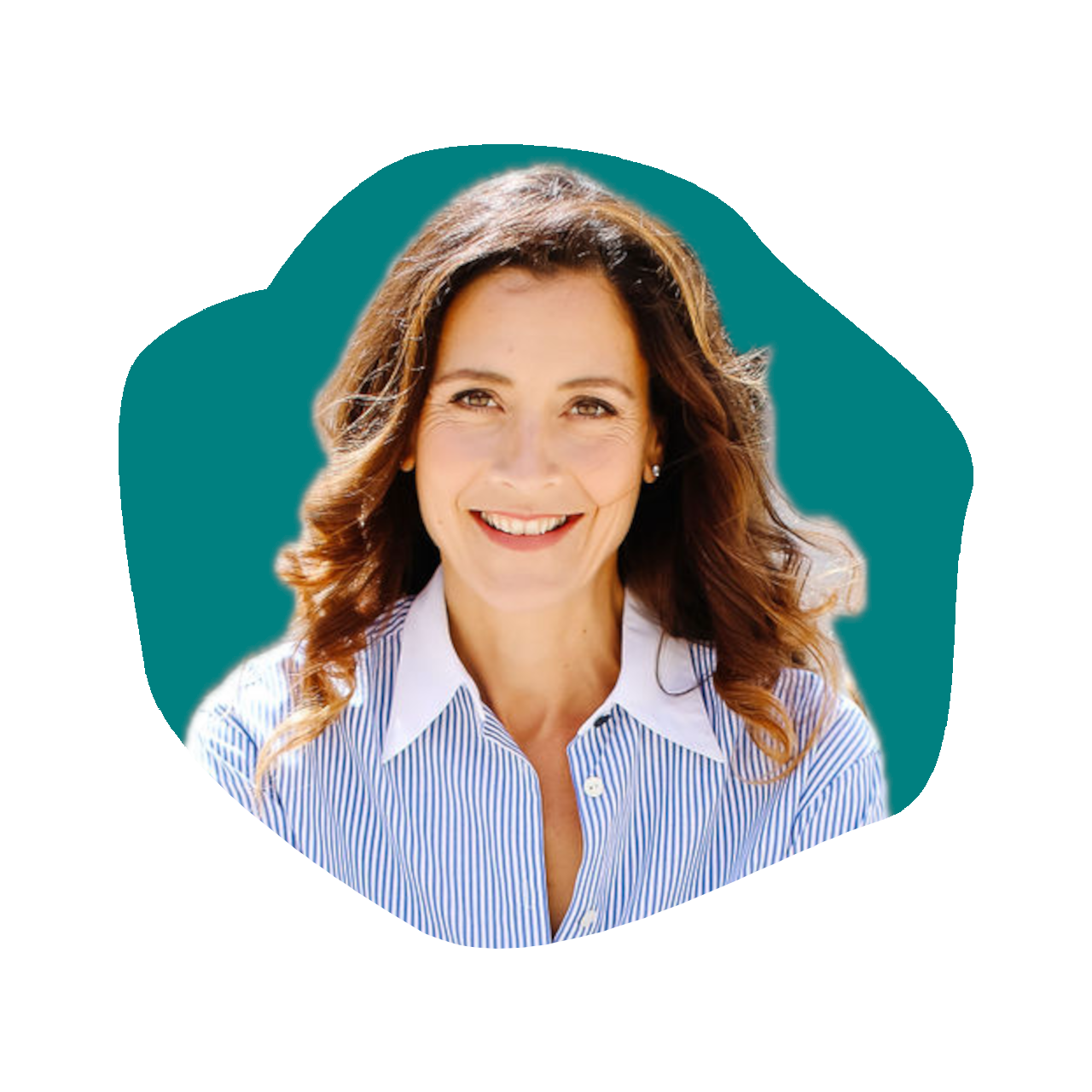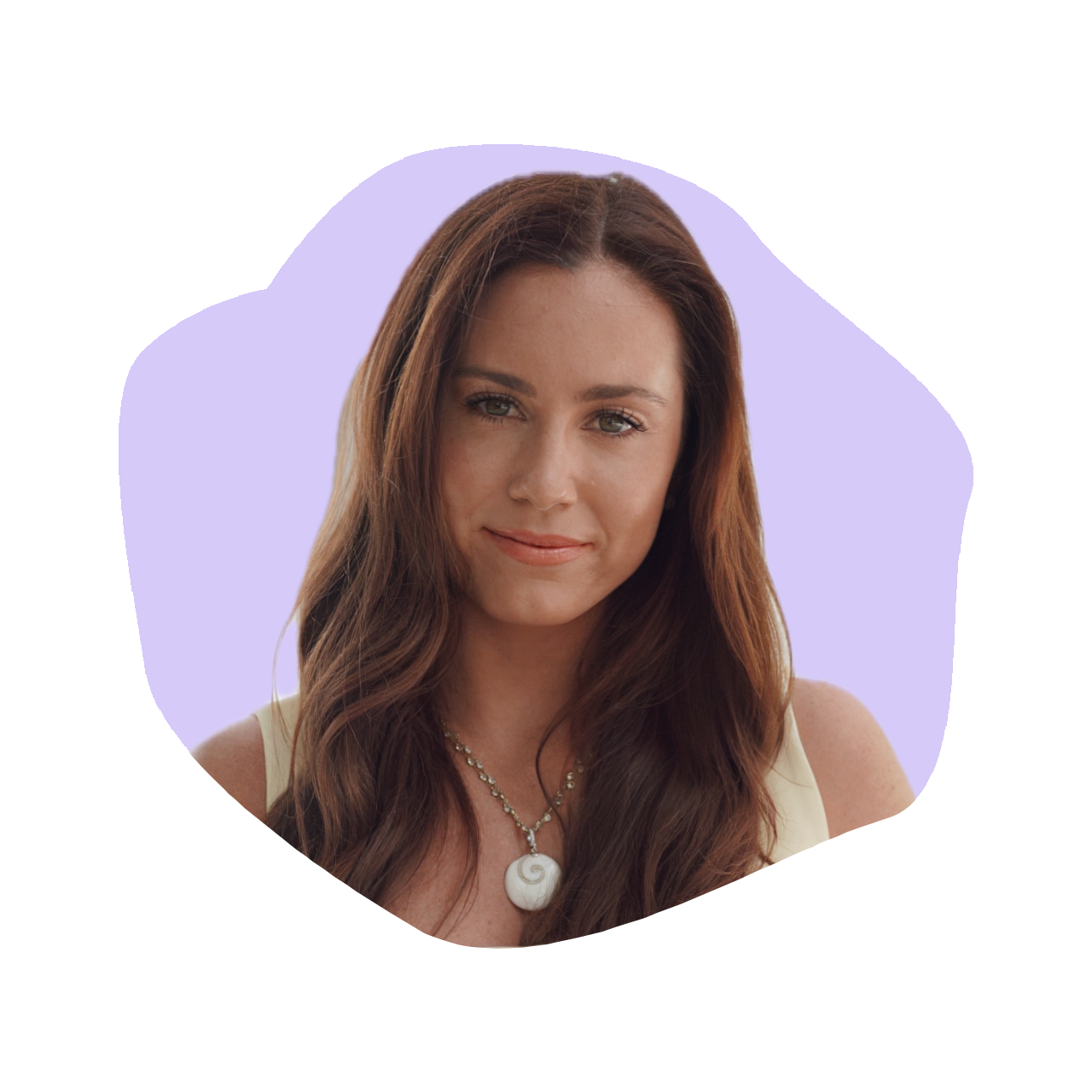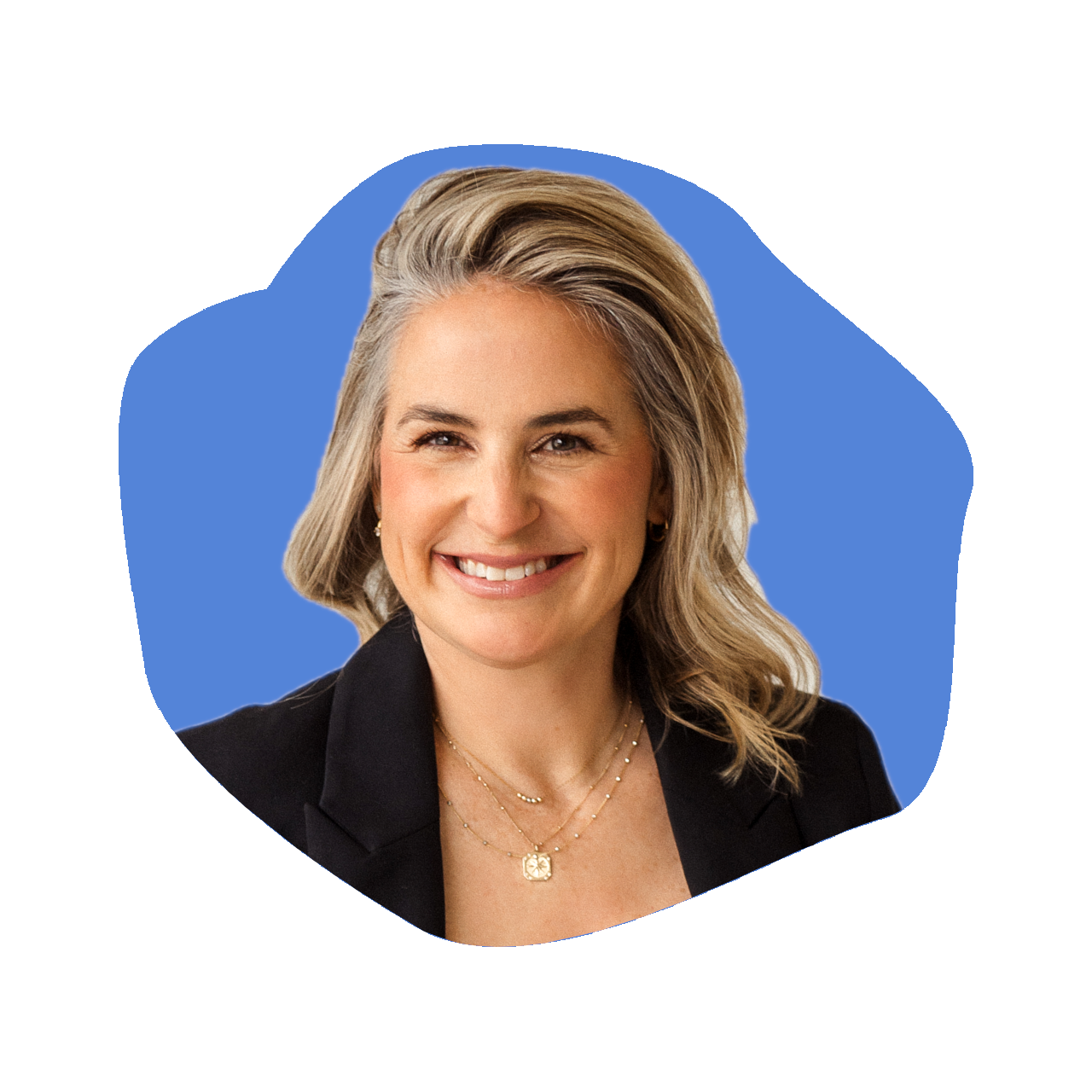Jessica Sturzenegger: Founder & CEO of Amara
Episode 700
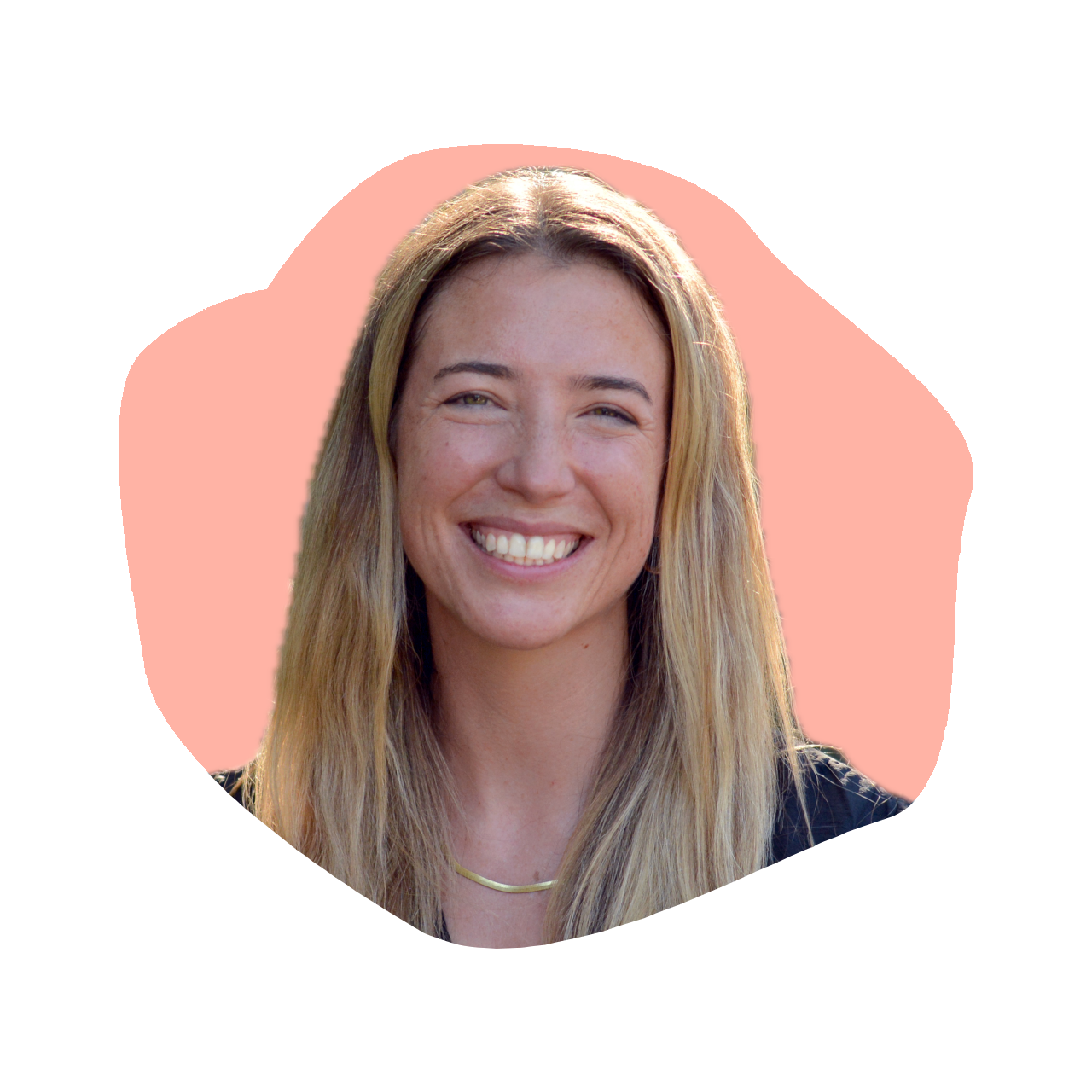
On today’s episode, Kara welcomes Jess Sturzenegger, Founder and CEO of Amara, a baby and kids food company redefining what healthy really means. With a commitment to clean-label ingredients, no added sugar, and nutrient-packed options that actually taste great, Amara is winning over both parents and retailers—and standing out in a crowded category.
Jess shares how Amara went from concept to shelf, the challenges and wins of scaling a CPG brand in today’s market, and the surprising ways freediving taught her the resilience and mindset needed to lead. This episode is packed with insights for founders, innovators, and anyone passionate about building purpose-driven brands. Don’t miss it!
Resources from
this episode:
Enjoying this episode of #TheKaraGoldinShow? Let Kara know by clicking on the links below and sending her a quick shout-out on social!
Follow Kara on LinkedIn – Instagram – X – Facebook – TikTok – YouTube – Threads
Have a question for Kara about one of our episodes? Reach out to Kara directly at [email protected]
To learn more about Jessica Sturzenegger and Amara:
https://amaraorganicfoods.com/
https://www.instagram.com/amaraorganicfoods
https://www.linkedin.com/company/amara-organic-foods
https://www.linkedin.com/in/jessicasturzenegger/
Transcript
Kara Goldin 0:00
I am unwilling to give up that I will start over from scratch as many times as it takes to get where I want to be. I want to be you. Just want to make sure you will get knocked down. But just make sure you don’t get knocked out, knocked out. So your only choice should be go focus on what you can control. Control. Control. Hi everyone, and welcome to the Kara Goldin show. Join me each week for inspiring conversations with some of the world’s greatest leaders. We’ll talk with founders, entrepreneurs, CEOs and really, some of the most interesting people of our time. Can’t wait to get started. Let’s go. Let’s go. Hi everyone, and welcome back to the Kara Goldin show. Today’s guest is someone who’s reimagining what healthy food for kids should look like and changing the category for the better. I’m joined by Jess sterzenegger, founder and CEO of Amara. Amara has gone from an idea to a top baby food brand by providing clean label products, no added sugar, nutrient rich foods that actually taste amazing. They really focus on baby toddler, but I have to say that I enjoy it as well. So it’s a yummy, yummy addition to anybody’s day. So blends, baby blends and toddler blends to smoothie melts and oat bites, lots of things, great things going on at Amara. So I can’t wait to hear more about Jess, how she’s building this company, what her journey was, and how she’s dealing with basically scaling a high growth CPG brand in a very competitive space, what it takes to win with both retailers and parents, and how free diving shaped her resilience as a founder. So Jess, welcome to the show. So excited to finally meet you. Thank you, Kara. And
Jessica Sturzenegger 2:01
I have to say it’s like a pinch me moment, because when I was starting the company, you were like, literally a local celebrity, and obviously national, but with hint in San Francisco. So I’m really excited to be here. So
Kara Goldin 2:12
excited. Well, thank you for the kind words. Really nice. So okay, so let’s start at the with the brand, and I guess at the beginning, what is Amara?
Jessica Sturzenegger 2:24
Um, so Amara, we make a healthy snack for zero to seven years old so that they can eat better, feel better and think better for the rest of their lives. Or a big believer, then what you eat actually determines how you think, feel and perform later on in life. The products that most people probably recognize is Amara. So we do these toddler snacks that everybody eats, you know, but really targeted at the target market. So like, one to three, four years old, fruits and vegetables with no added sugar. And then, if you imagine it, it’s like, imagine fruits and vegetables blended with no nothing else. So it’s just whole fruits and vegetables, and then it comes out to like this, like little Hershey kiss that looks like this, that melts in your mouth, and it just, it’s a really clean snack for kids, so that they can actually eat things that don’t have all the added sugar in them. So and today, you find us. You can find us nationwide. You can find us most recently in Target and Walmart. You can find us in clubs nationwide, at Costco. You can find us in sprouts, Whole Foods, and then you know where we started, the local grocery stores in California.
Kara Goldin 3:37
I love it. So how did you come up with this idea to start Amara, and was there a moment when you knew that the current options that were out there just weren’t cutting it, and you just hit, go,
Speaker 2 3:52
Yeah, well, I mean, that’s a great question. I think for me, it was really and I think most consumers know that they should be eating healthy food. I mean, I knew I should be eating healthy food. I was born in Switzerland, though, like, food was very much a part of, like, how I grew up. It was, you know, we had long dinners in the US, like, just, it was very much a part of everything we did. But when I became, like, went out to the real world as a young professional, I found that I wasn’t eating very well. And just because, you know, I would start the day well, but then between, like, one meeting to the next, like, we’re all in it. And back then, it was in person. Like, I just didn’t have the time, and so I was eating a lot of packaged foods. I really, I wasn’t feeling very good. I realized that this, like, kind of hippy dippy you are what you eat, very much, rooted in science. And that’s when I was like, Wait, there’s something here. And obviously, being a staff like, you know, trying to figure out what worked for me, like, a lot of early days of biohacking, like really understanding what impacted me and how it impacted me was where it all started, and it was really just because I was, like, I want to be eating healthy, like all of us wanted me, but like, the trade off of eating healthy versus. Is actually like, doing it is a big one because time, so that definitely and then we actually worked on the how first, so just making sure we could bridge that gap. And then decided, like, we’re going to make package foods where it matters the most, from zero to seven years old. So that’s like, really, where your gut microbiome, your brain neural pathways, like your preferences for healthy eating, are all happening from zero to seven so we said we’re going to bring snacks that are really easy for our parents to use, but also delicious for kids to eat, and so that they can feel better.
Kara Goldin 5:36
I love it. So what was kind of the initial product, the initial skew that you launched with, gosh.
Jessica Sturzenegger 5:43
So we actually launched earlier, so the technology has always been the same from all of our product lines, but we actually launched with baby food. So we launched with a baby food that was essentially fruits and vegetables and grains that you mix with breast milk, formula and water, and it makes like a puree, and then it’s ready to go. So again, you had these trade offs in the category of either going to packaged foods, which oftentimes were like really high heat, repeated heat process that, like, is much more of like a heated applesauce than anything else, and mostly fruit based, or making it at home. And there wasn’t much of a middle ground, and that’s what we strove to do. It’s something that you know could still make all those benefits of fresh homemade food, but without actually having to start from scratch.
Kara Goldin 6:28
Okay, so product development is always a little bit challenging. It’s a lot of fun to figure out how to actually produce these products and produce these products so that they’re ready to go on the shelf. But how did you figure that out? What were you doing before this?
Jessica Sturzenegger 6:43
Oh, gosh, nothing related. I was in finance, so I’d say. And what’s really interesting, I think, is the how we make it, because a lot of products are co packed. So essentially, what that means is that, like, you want a granola bar, you go to like, a granola bar manufacturer, and you say, hey, I want a granola bar with, like, peanut butter and chocolate and sea salt. And essentially, you know, they give you some flavors, but really they’re making it for you. We actually had to start from scratch. So, you know, in the early days, it was me actually ordering apples and making lots of mistakes, which at what point we could talk about but, and then it really became like we had to build a network of trusted suppliers, because we went really deep into the how it’s made. So we were much more of a manufacturing company before we were a sales and marketing company that came later.
Kara Goldin 7:38
So, so interesting when you felt like it was time to actually get the product on a store shelf, did you feel like there were still a lot more to do? I always suggest to founders like, launch a product that is ready enough, right? You’re never really going to it’s not going to be perfect, right? And I think that obviously you don’t want to make anyone sick or die from having your product, but it’s it’s not going to be perfect, right? And so many people who are founders, it seems just wait and wait and wait for that perfect thing. Did you feel like the product was good enough to launch, or were you sort of agonizing in those moments before launching?
Jessica Sturzenegger 8:29
So for us, because of the end consumer, like we knew we were gonna be feeding young kids, like we had to launch an almost perfect product, so we spent three years in like, the development of the product. So I’d say the product hasn’t really changed much, like we spent years on the product, but I’d say what has changed is like, things like packaging, which we thought about so much before we launched, and things like channel strategy, like we launched. I remember I launched on Amazon. I remember it took me like, weeks to put up the listing, because I was so nervous of, like, making it live, and then we, like, didn’t have an order for a really long time, and I was like, what’s going on? Is the system broken? Like, why? Why are orders not just flowing in? So I think that’s like, what’s changed the most is really the product packaging. And if you look deep enough online, you can see we were a very different brand when we started.
Kara Goldin 9:21
I love it. So Amara has become the number one baby and Kid food brand on Amazon, and recently ranked number three in food and beverage on the Inc 5000 What do you think has really driven that kind of growth? That’s
Jessica Sturzenegger 9:39
a good question. It’s a lot of pinch me moments, but I, you know, for for me, it was, I really wanted to make sure one of my mentors told me, like, start small, start deliberate, like, really understand exactly, like, how the product works in a really small subset of stores. So when we launched, like, we were in a. Handful of stores. Like, I was still able to go to all of them. They were all in Northern California. I was going to them every single day and really understanding, like, what does good look like for the category? Like, why are people buying us? I was just spending a lot of time, like, asking, I’m sorry, to anybody that met me in San Francisco in a grocery store in 2017 but spending a lot of time just asking people, why are you buying this? Like, what’s your choice? Um, but really shelf and and so we started small. And so when we actually started growing was when we knew exactly what our velocities would be like, why people were buying it, the things you know that we still have lots to do, but the things were in better spots than when we started in the packaging, a lot of decisions are still made on shelf. So yeah, but we learned really small first.
Kara Goldin 10:48
So what does it take to build trust with parents in a space where food quality and safety are paramount? Obviously, taste is something that is is key for any brand. But what do you think it takes to build this trust with parents, where they’re going to come back in and buy again?
Jessica Sturzenegger 11:08
I mean, I think we, we talk a lot about, it’s a great question. I think it’s something we think a lot about. I think that, for me, it’s they need to know that, like, there’s real people behind this brand, and it’s like, you know, I have friends that are in other food industries like we test each and everything multiple times. We’re testing at multiple levels within the process as well. Because I think it’s, you can never be too safe. But it starts with our suppliers, and it starts with the people behind it, and the thought that’s put into every ingredient, you know, we’re not launching hundreds of products, because the thought that we put behind each and every product is is a lot.
Kara Goldin 11:48
Yeah, it’s, it’s significant. How many SKUs do you have now? We have 1515, SKUs. That’s, that’s amazing. So you started in baby food, but now a Mars product line has expanded. Where does it go? I mean, does it go beyond you started in baby, you went into toddler. Where does it go? Because Amara is building this trust with parents, and not just the children, but also the purchaser. So where does where does it go overall,
Jessica Sturzenegger 12:19
yeah, I mean, we started, you know, I’ll answer that by saying, like, we started with baby, because that’s where I was like, gosh, you know, my eyes were open once, because the science is so strong in terms of, like, how much it matters at a young age. And so we started there, and then we grew. The reason why we grew was, like, customers were like, hey, like, my kid grew out a baby. Now I’m on snacks. I was like, Okay, well, what’s out there? Then when you look at it, it’s like, thought of, like, gushers and fruit roller roll ups. And you’re like, those are great for a certain, you know, time of day, but, but, like, what people are eating just has a lot of added sugar in it, like, it wasn’t even hidden. So, you know, the reason why we’ve grown is because of our consumers coming back and telling us kind of where they want to go. And, you know, we launched a, you know, we call it like a toddler plus line. So there are larger shapes for, like, the older kid earlier this year, with sprouts. And, yeah, we’ll just keep following our consumer. But really where, like, what people can come to trust with us is that, like, we’re we’re focusing on where it matters the most for gut microbiome and gut and brain neuro pathways that zero to seven, but we’re also, like, you know, very, very, very strict about what we put in our product. So, like, no added sugars, like, first and foremost, but really clean ingredients, like, we’re not going to be adding, like, maltodextrin and kind of all these filler products, you know, it’s just, it’s only Whole Foods, so it’s nothing that’s made in the lab. You know, we’re not adding dyes or coloring agents like we’re actually using, like, carrots for color, you know. So things like that from product to product. We want to make sure we can stand behind as a brand. You
Kara Goldin 13:59
started as a direct to consumer brand, Amazon has been a major driver for your business. What do most founders get wrong when trying to scale through direct to
Jessica Sturzenegger 14:13
consumer I think it’s math, like you understand the math, your LTV, or CAC like you just you have to really understand it. And also, I think it’s really hard to change consumer behavior. So I think we follow our consumer and we really try to meet them where they’re at. But I think that you really, as a founder, need to know those numbers really well and not lie to yourself. I think like really understanding those numbers
Kara Goldin 14:42
is key. Yeah, definitely. So retail partnerships, how many years in Did you Then branch out and start getting into stores? So
Jessica Sturzenegger 14:54
we started, I’d say we started massifying The stores around 2021, I want. Say, but we really started, we were always in stores. So, like, we were always in, like, the Berkeley bowls and, you know, the Molly stones and kind of the local San Francisco stores, and that’s where we learned retail. And then we started growing, you know, you know, a few years later, with sprouts, and then we launched nationwide with Whole Foods last year. So I think we learned with retail, but I’d say we started retail slow and then expanded it from there.
Kara Goldin 15:29
So you are also a free diver. I’d love to hear a little bit more about this and how that’s shaped your leadership style or influenced how you handle pressure as a founder.
Jessica Sturzenegger 15:44
I think, like, I love what I do every day. I think, you know, you’re a founder, like a lot of founders will echo that, that I think it’s, it’s really hard to turn off, because that, like, I love every day, the team is awesome. Like everything, it’s different. You know, you’re it’s a muscle, so it’s different skills. But I think that kind of forcing myself to turn off is really hard. I find that with free diving, you can turn off in a way that I can’t. I think some people get it running, but running, I can sell my phone on me. So below the water, it’s harder, but for me, it’s just, it’s a great kind of turn off, and really helps me kind of clear and really think through some things or come back refreshed.
Kara Goldin 16:28
Where do you go? Free diving? Oh gosh,
Jessica Sturzenegger 16:33
well, so it used to be some in the bay, and then more destination free diving than anything else. It’s harder to do in your day to day. When we were younger in the company, it was a little bit easier to kind of do throughout the work week, but it’s impossible now, so it’s much more destination free diving. We have a trip coming up in August to Tulum.
Kara Goldin 16:54
Oh, fun. That should be that should be a lot of fun. So when you think about the brand, and maybe you look at other baby food brands out there. We all do. You know, we all watch people in our competitive space, but what do you think you guys do that is really difficult for other people to replicate?
Jessica Sturzenegger 17:19
That’s a great question. Yeah, I think for us, the like, making it with only Whole Foods, it sounds really simple, but it’s really because of our technology we’re able to do that. So really Whole Foods, like no added ingredients. It sounds incredibly simple, but it’s, it’s very hard. I think that’s something we do, you know, that no one else in the category does. And then I also say this is kind of softer, but the taste, because of our inputs and because of the how we make it, the our taste is better than anybody else that’s out there. You know, there’s, there’s products now that can kind of say similar things than we but our taste is better than everybody. So like, one of our key strategies is trying to get we always say the melts in mouth like get as many melts in mouth as possible, because we find that once people taste it like they just keep coming back for more. Because it’s just it’s essentially a really tasty snack that happens to be really good for you and your kids. When
Kara Goldin 18:17
you are looking at the storytelling aspect of the brand and connecting emotionally cutting through the noise. What have you learned, especially about the consumer and you, you mentioned this, that they want to know that there’s somebody behind the brand, but when you think about maybe advice that you would give to other founders who are launching a brand, what would you say to the topic of storytelling? That’s a great question.
Jessica Sturzenegger 18:51
It’s probably the hardest thing for me to learn was really the storytelling. So I’d say when I started, all I wanted to do was to talk about the nutrient structure and what was happening with the nutrients. Like, but, you know, while, like, maybe the biohacking community in San Francisco cared, no one else really cared. Because I think that really they wanted to know, like, why it was good for them. And so I’d say, like, just remember that, like your consumer is not always you, so the people buying the your products might be very different than and might have different interests than you. So I think we did a lot of listening. I think the storytelling was the hardest. Like, whether it’s from the marketing perspective of the product or from, you know, the fundraising side, like I hired a coach to help me tell the storytelling, because all I wanted to talk about was the nutrient structure and numbers, you know. But like in the early days of fundraising, no one really like wanted to hear about my nutrient structure, yeah. But there’s a lot more storytelling. I think that’s, you know, by nature, I’m a little bit more. Quiet and probably a little bit more reserved. And that was the hardest kind of muscle for me to understand how to, how to do the storytelling well. And
Kara Goldin 20:08
I think keeping it simple, right? That the consumer doesn’t, doesn’t always need to know how everything is made, even though you’re proud of it, right? It’s, it’s more, you know, getting people to purchase it, and then I think getting them to come back again and again and again, you have to keep it the messaging really, really simple. Even if they’re incredibly intelligent, you know, they love your product. I think that the idea that there’s some real person behind it and making that story really simple is, is super key. So when you look at Amara, you’re going to be launching some new products. She has some new distribution that is coming up as well. Can you share a little bit about that? Yeah,
Jessica Sturzenegger 20:52
so soon. So we’re in Whole Foods nationwide, but soon you will be able to we’re launching something new with them that’ll be available nationwide on shelf in June. So we’re very excited about that. And really, across the board, we have great retail partners, and we’ll keep innovating with them. That’s
Kara Goldin 21:12
awesome. So you have not shied away from still doing business with Amazon or the direct to consumer business. You think that both ways of getting to the consumer is, for the foreseeable future, the way to actually continue to grow a brand? Yeah, that’s
Jessica Sturzenegger 21:30
a great question. I think it’s something we talk about a lot. And for me, what’s really important is that we really try to provide, like, a different experience in each channel, because we find that the consumer is different in each channel. Like, for me, you know, I’m personally an Amazon shopper. I barely buy from people’s D to C websites, but, but when I do, there’s a reason I do, you know, because you have to put in a credit card number and everything. So we really try to understand that reason and then speak, you know, the products that are on there, the experience that is on there is really specific to that customer that’s different than an Amazon customer, or different than, you know, somebody that’s going to Whole Foods in storage or Costco in stores like I think they’re different shoppers. And we try to make sure that the experience is different throughout still the same product, but the experience has to be different. So
Kara Goldin 22:12
what is success for Amara, and when do you know that you’ve been successful? So I know it’s it’s kind of a hard question to think about, especially when you’re doing the day to day of continuing to grow the brand. But I feel like so often as founders, we don’t look at kind of what we’ve done and what we’ve created and the milestones along the way. But what is success for you, and for Amara, it’s
Jessica Sturzenegger 22:42
hard, as you said, like, I think, like, there’s always something else. And I think like taking those moments to celebrate, it’s really hard to do as a founder, but I think that, um, for me, it’s more, you know, we’re really careful about what we put in our products, how we make the products. I think for us, success, for me, is when our consumers are fighting the same thing, and they’re saying the same thing, and they’re like, No, that’s not an tomorrow products, because they don’t do that. I think that is really when I feel like we’ll have built a brand. Is when the consumer itself is fighting for the same thing that we hold really dear to our hearts.
Kara Goldin 23:16
I love that. Well, Jess, you have built an incredible brand. It’s not easy, especially in a very competitive category. You’ve they’re great tasting, beautiful products that is gaining, obviously, lots of attention, lots of traction. You should be really proud of what, of what you’ve done, for sure, and everyone needs to check out Amara, and we’ll get all the info in the show notes. But please, if you’re a parent, a food lover, founder chasing bold ideas, you have to continue to follow Jess and what they’re doing at Amara. And of course, purchase the product too. If you enjoyed this episode, don’t forget to subscribe, leave a review and share it with someone building something super meaningful, or thinking about the founder journey, because Jess is a great, great inspiration, for sure. So thank you again, Jess, and thanks everybody for tuning in to the Kara Goldin show until next time. Thank you, Kara. Thanks again for listening to the Kara Goldin show. If you would please give us a review and feel free to share this podcast with others who would benefit and of course, feel free to subscribe so you don’t miss a single episode of our podcast. Just a reminder that I can be found on all platforms at Kara Goldin, I would love to hear from you, too, so feel free to DM me, and if you want to hear more about my journey, I hope you will have a listen or pick up a copy of my Wall Street Journal, best selling book, undaunted, where I share more about my journey, including Fauci. Bonding and building hint we are here every Monday, Wednesday and Friday. Thanks for listening, and goodbye for now you.





